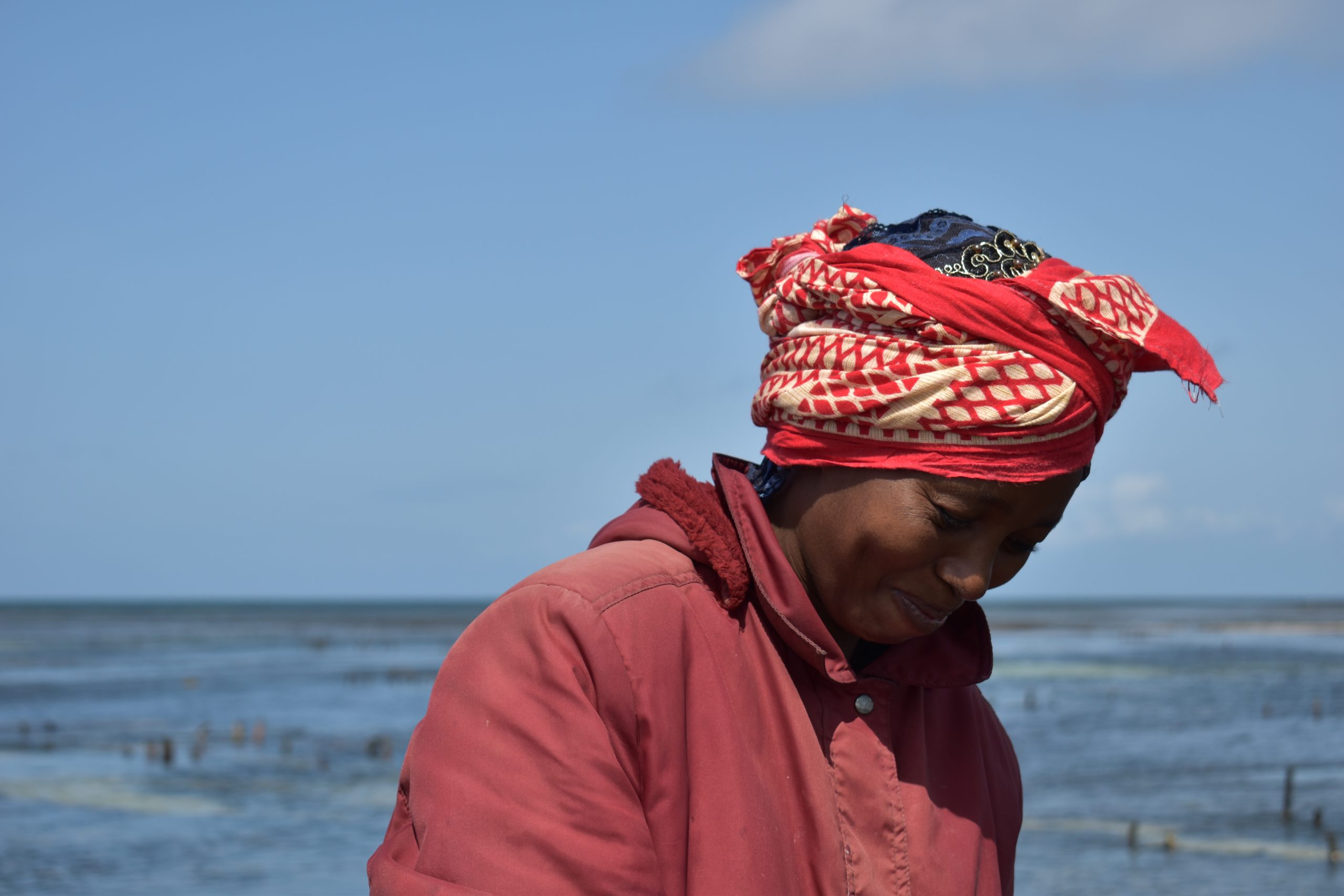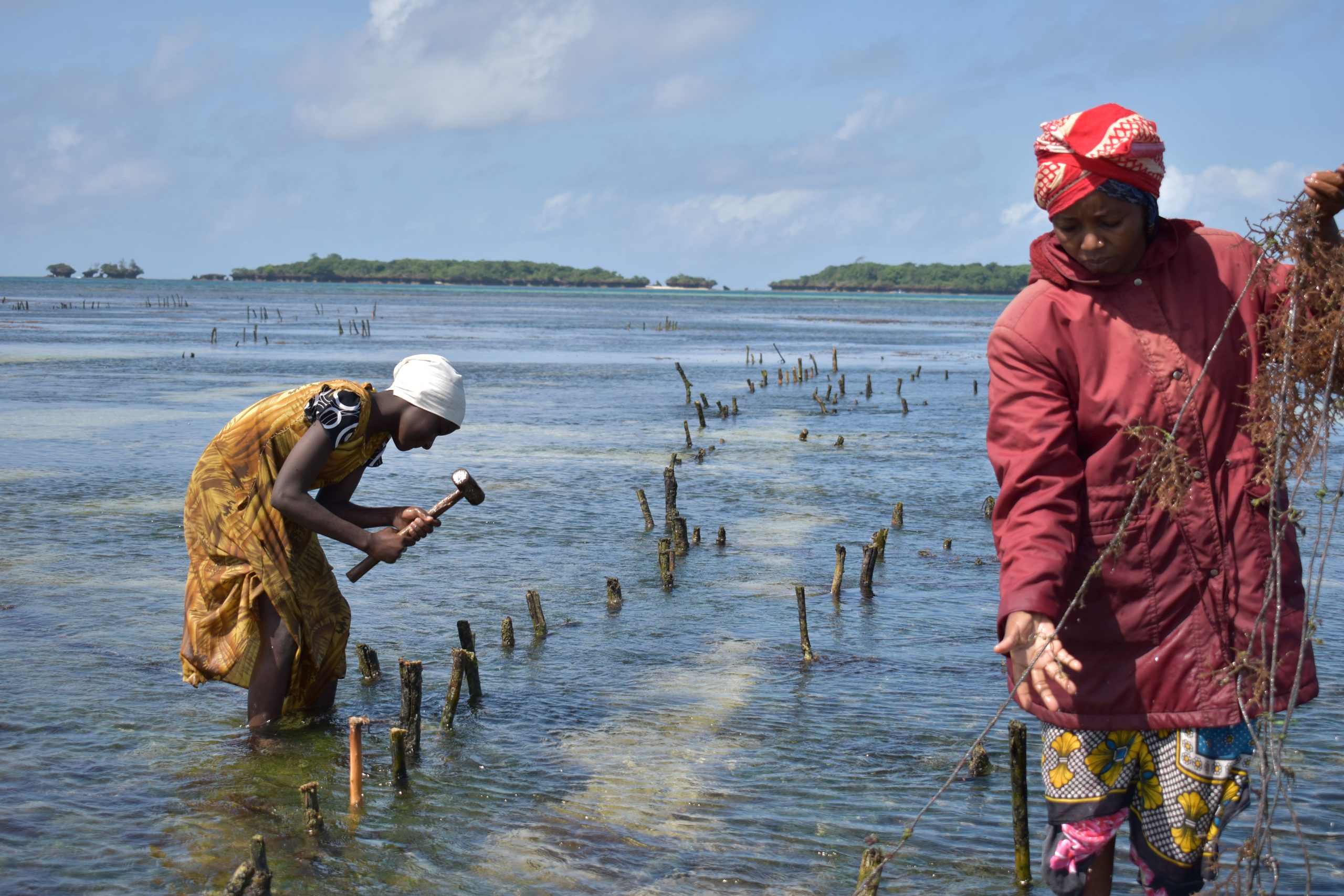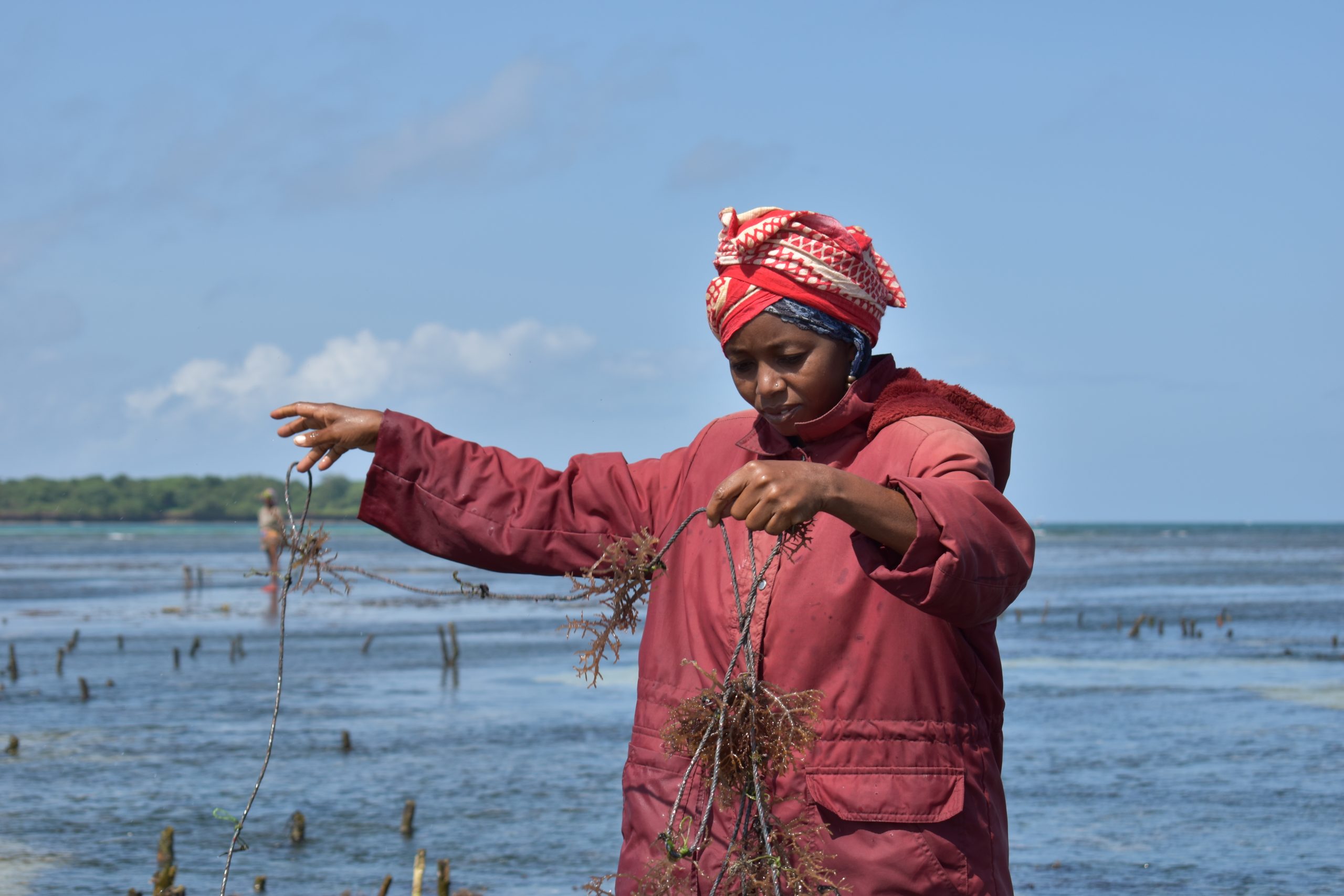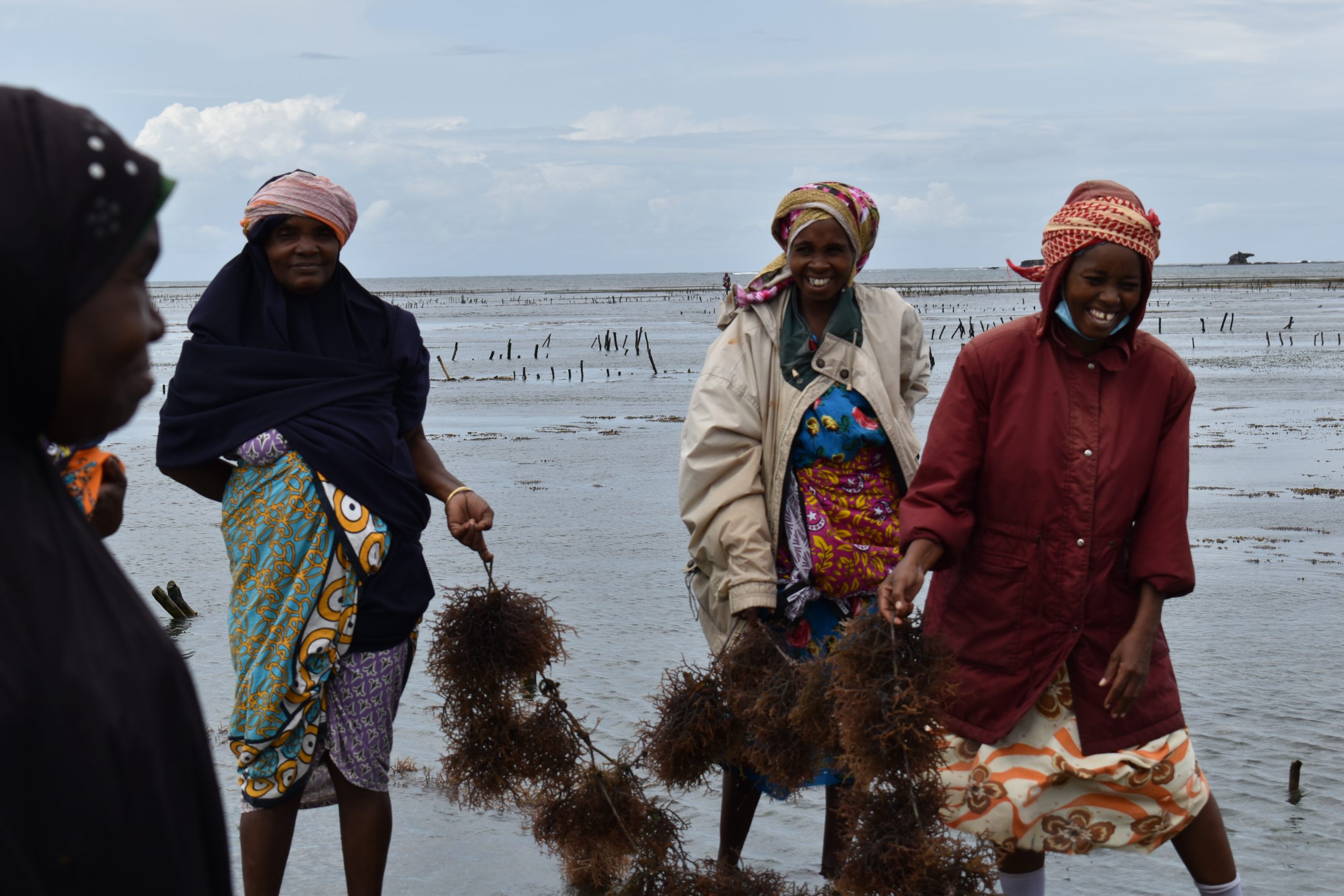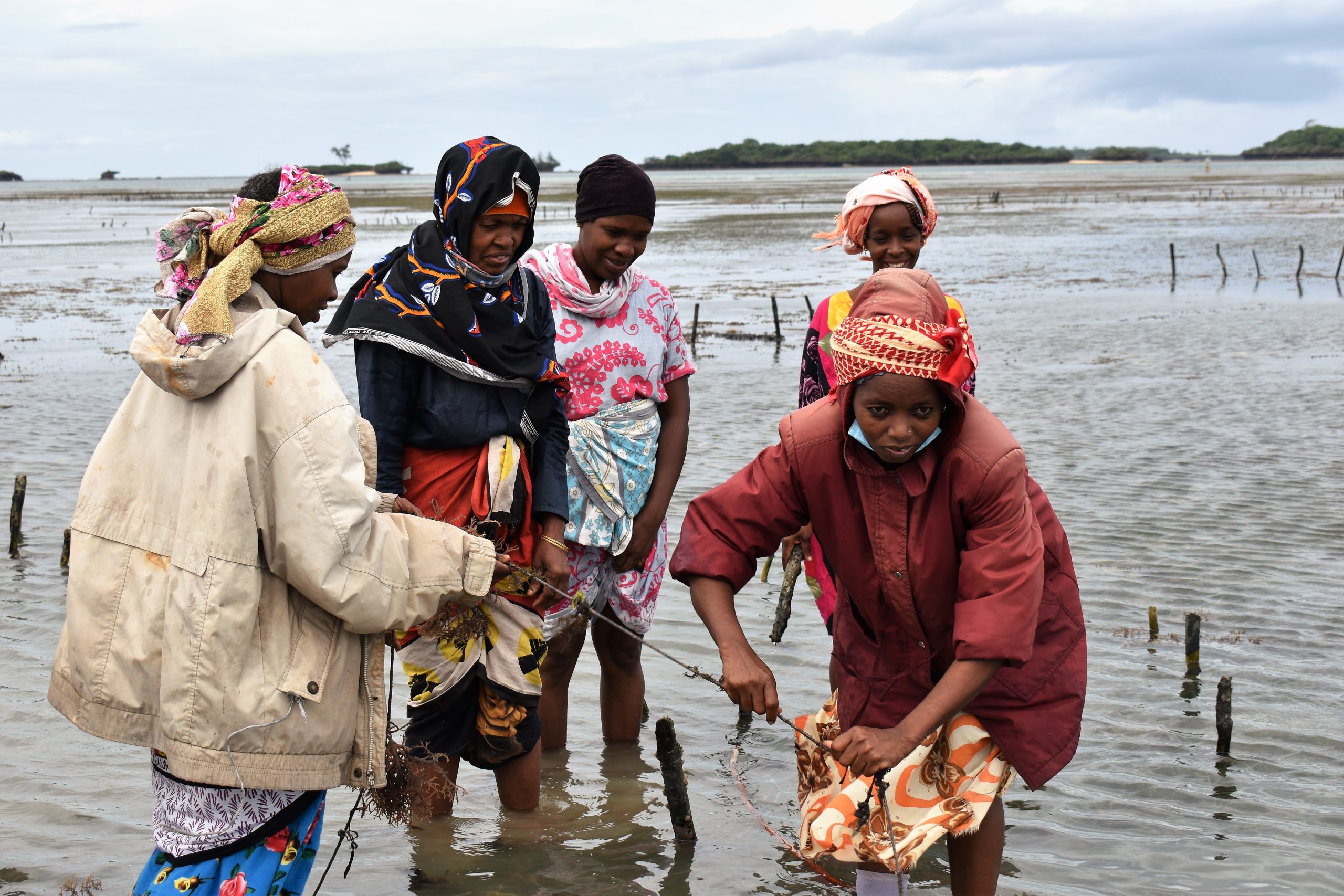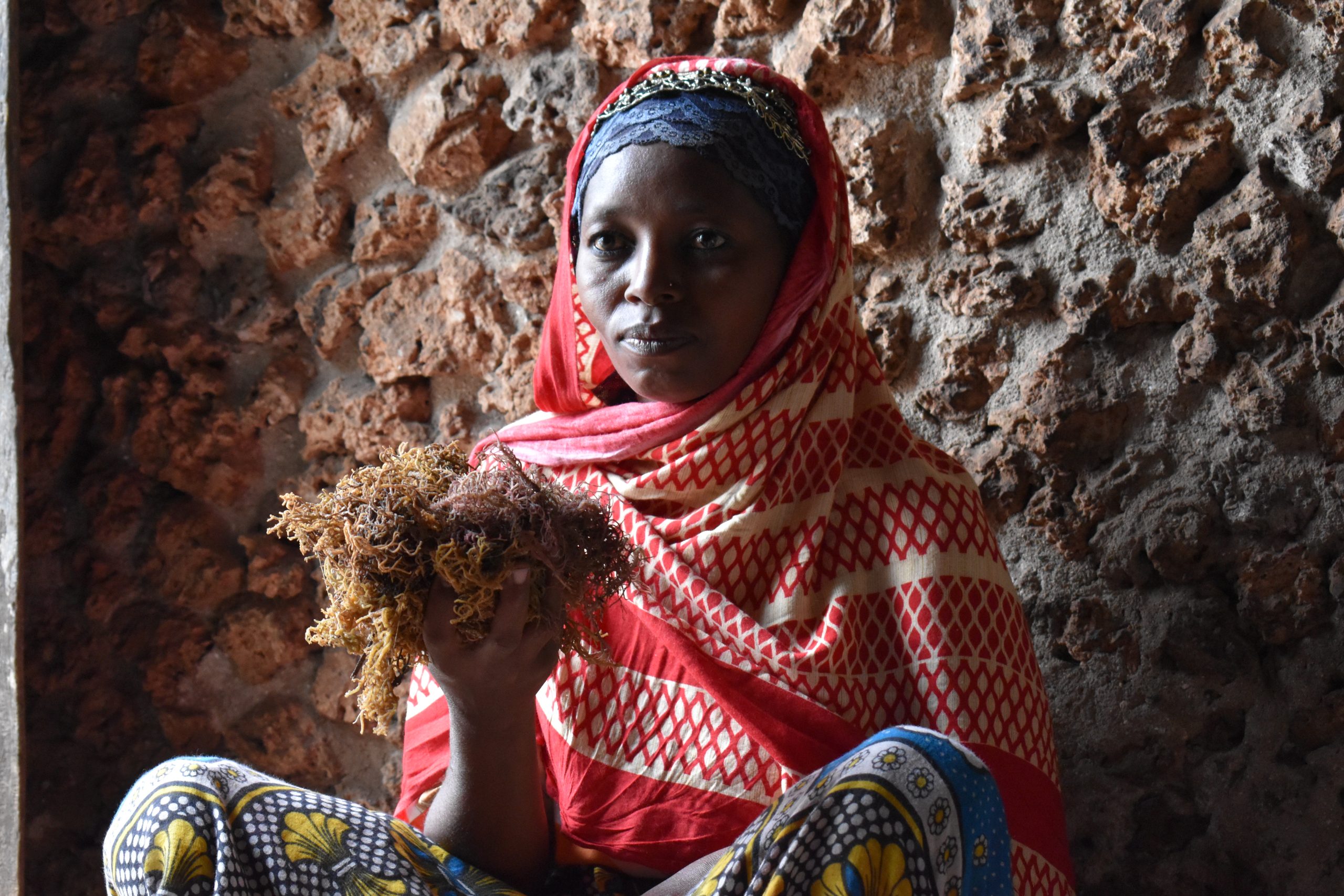“Il mio nome è Mzungu, e ho 39 anni. Sono nata qui nel villaggio di Mkwiro. Ho sei figli, e sono la seconda moglie di mio marito. Mi sono sposata a 16 anni. Ho iniziato a lavorare nella coltivazione delle alghe qualche anno fa. Nel 2009 il Governo del Kenya ha facilitato l’avvio di questa attività, e pian piano si è creato un gruppo composto principamente da donne. Io sono la vice coordinatrice del gruppo, siamo quasi un centinaio – ci sono tre uomini che ci aiutano per il trasporto delle alghe dalla shamba alla costa. Ognuna di noi ha una shamba dove pianta e raccoglie le alghe. Lavoriamo cinque giorni a settimana, circa sei ore al giorno, ma dipende dalla maree dell’Oceano. Una volta raccolte, le alghe le mettiamo in questi sacchi di plastica: ce li carichiamo in testa e li portiamo fino a riva. I sacchi possono arrivare a pesare fino a 50 kg, perché le alghe sono bagnate. Una volta raggiunta la costa, le alghe vengono messe ad essiccare – le lasciamo all’aria aperta, in giardino, ci mettono quasi due giorni per essere completamente secche. Con le alghe si possono fare tante cose: con i macchinari adatti, si possono produrre saponi, si possono anche usare in cucina per fare delle zuppe. Noi le vendiamo ad un commerciante cinese – anche se adesso con il corona vendiamo un po’ meno.”
“My name is Mzungu, I’m 39 years old. I was born in Mkwiro village. I have six children, and I am my husband's second wife. I got married at 16. I started working in seaweed farming a few years ago. In 2009, the Kenyan government supported the beginning of this activity in the area, and gradually a dedicated group was created, mostly made up of women. I am the deputy coordinator of the group, we are almost a hundred women - there are three men who help us transporting the seaweed from the shamba to the coast. Each of us owns a shamba where to plant and harvest seaweed. We work five days a week, about six hours a day, but it depends on the tides of the ocean. Once collected, we load seaweed in big plastic bags and we walk up to the shore. These bags can weigh up to 50 kg, because seaweed is wet. Once on the shore, we dry them - we leave them in our gardens under the sunlight, it takes almost two days to be ready. Seaweed can be used to do many things: with the proper equipment, you can produce soaps, you can even use them for cooking soups. We regularly sell them to a Chinese trader - even if now our business is a bit influenced by the Coronavirus."
MZUNGU è nata e vive a Mkwiro, piccolo e colorato villaggio di pescatori di circa 1.000 abitanti sull'isola di Wasini, nei pressi del confine con la Tanzania. L'iniziativa “Go Blue” finanziata dall’Unione Europea e realizzata da Aics insieme a CIHEAM Bari, interviene a Mkwiro per rafforzare la filiera della pesca, fornendo sostegno diretto alla cooperativa locale di pescatori e alle donne impegnate nella raccolta della alghe, come Mzungu. Gli interventi previsti includono la realizazzione di attivita' di formazione, l’acquisto di imbarcazioni, strumenti e infrastrutture per la pesca, l'installazione di equipaggiamenti informatici per migliorare l'attivita' di analisi dati relativi alla pesca, e l'introduzione di un sistema di certificazione che attesti standard qualitativi definiti per il pescato, che permettera' ai pescatori di migliorarne la commercializzazione.
MZUNGU was born and currently lives in Mkwiro, a small and colorful fishing village of about 1,000 inhabitants on Wasini island, close to the border with Tanzania. The "Go Blue" initiative funded by the European Union and implemented by Aics together with CIHEAM Bari, intervenes in Mkwiro to strengthen the fishery value chain, providing support for the local cooperative of fishermen and to women engaged in seaweed farming like Mzungu. Planned interventions include the realization of training activities, the provision of boats, equipment and infrastructure to improve the fishing activity, the installation of ICT equipment to improve data analysis related to fishing, and the introduction of a labelling scheme certifying defined quality standards for the fish, which will allow fishermen to enhance the marketing of their products.

